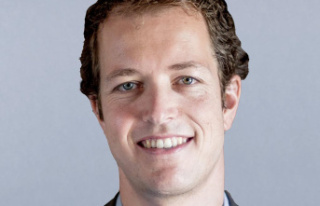The federal government and the ailing energy company Uniper have agreed on a rescue package worth billions. This also provides for the entry of the federal government, as Uniper announced on Friday. A levy on all gas customers is also planned, which means price increases.
The company is of paramount importance for the energy supply of citizens and companies, said Federal Chancellor Olaf Scholz at a press conference in Berlin. Gas customers will face price increases. A levy will come on October 1st or September 1st, Scholz continued. It could be that a family of four would have to pay 200 to 300 euros more per year. With further relief, the government wants to prevent "individuals from feeling the full force, but that we share it on our common shoulders".
To relieve low-income households from the high energy prices, the federal government is planning a "major housing benefit reform". "At the beginning of next year" it should expand the group of eligible households and "integrate a flat-rate heating fee, so to speak, permanently," said Scholz. Pensioners should benefit "particularly" from this. There should also be heating allowances for students. The Chancellor said: "You'll never walk alone. We will do what is necessary and for as long as it is necessary."
Scholz emphasized that the coalition is also committed to ensuring that the basic income reform agreed in the coalition agreement "definitely on January 1st next year" will come into force. The details were being discussed. "But that is the basis for us being able to bring about substantial relief for those who have the least and make them better off."
The Chancellor sees Russia as an unsafe gas supplier. Scholz warned that it would not be safer than it was. He made it clear that Germany could no longer rely on Russia. "That's why we prefer to play it safe." Scholz referred to measures that had already been decided to reduce gas consumption. We will do everything we can to get through this situation as a country.
According to Uniper, the stabilization package provides for a capital increase of around EUR 267 million at an issue price of EUR 1.70 per share, excluding shareholders' subscription rights. The capital increase will result in the federal government taking a stake of around 30 percent in Uniper. Furthermore, a so-called mandatory convertible instrument of up to 7.7 billion euros should be issued to the federal government. These papers are interest-bearing papers that must be converted into shares by the end of the term at the latest. They are therefore viewed by rating agencies as an equity-like instrument. The loan granted to Uniper through the state bank KfW is to be increased from 2 billion to 9 billion euros.
The federal government explained to Uniper during the negotiations that from October 1, 2022, a general mechanism for passing on 90 percent of the replacement procurement costs for all importers as a result of Russian gas cuts should be introduced. Uniper only has commercial customers, including municipal utilities. However, you could pass on the higher costs in a next step.
The agreement stipulates that the federal government is ready to provide further support if losses due to replacement purchases that cannot be offset by operating profits from other business areas exceed an amount of EUR 7 billion.
The stabilization measures are subject, among other things, to the approval of the EU Commission under state aid law. Uniper will convene an extraordinary general meeting to obtain shareholder approval for the stabilization measures.
Uniper had applied for state aid. The company has to buy more expensive gas on the market to fulfill contracts because of the curtailment of Russian supplies via the Baltic Sea pipeline Nord Stream 1. This leads to liquidity problems. With a surcharge, the supplier could pass on price increases and thus get some breathing room financially.
It was initially unclear how the surcharge to all gas customers would work out. The Bundestag and Bundesrat recently passed amendments to the Energy Security Act. The federal government can therefore issue a levy via a statutory ordinance. The levy system should work in a similar way to the EEG levy to promote green electricity via the electricity bill, which has since been abolished.
With the surcharge, politicians would also send a price signal to consumers that energy savings are worthwhile. Because of the sharp rise in procurement costs on the markets, price increases are coming to consumers anyway.
Federal Economics Minister Robert Habeck (Greens) announced a new package of measures to save energy on Thursday. In view of uncertain Russian deliveries, the provision for the winter should be strengthened. The package also deals with saving energy in public buildings, companies, offices and a mandatory "heating check" in apartments.
Uniper plays a central role in Germany's energy supply and supplies more than a hundred municipal utilities and industrial companies.












